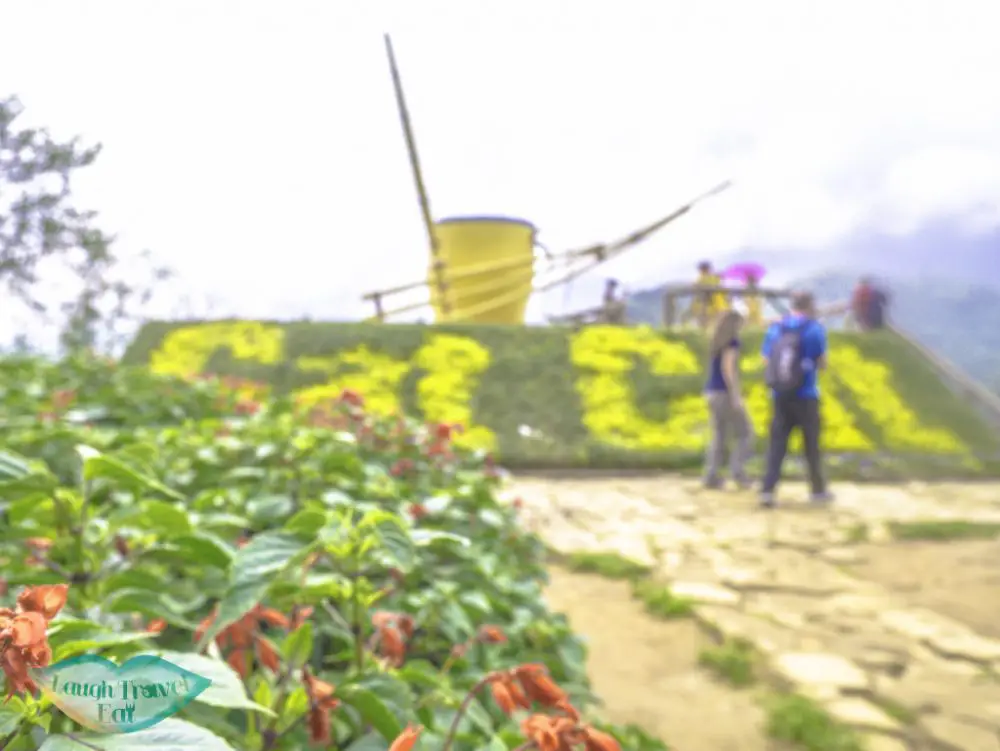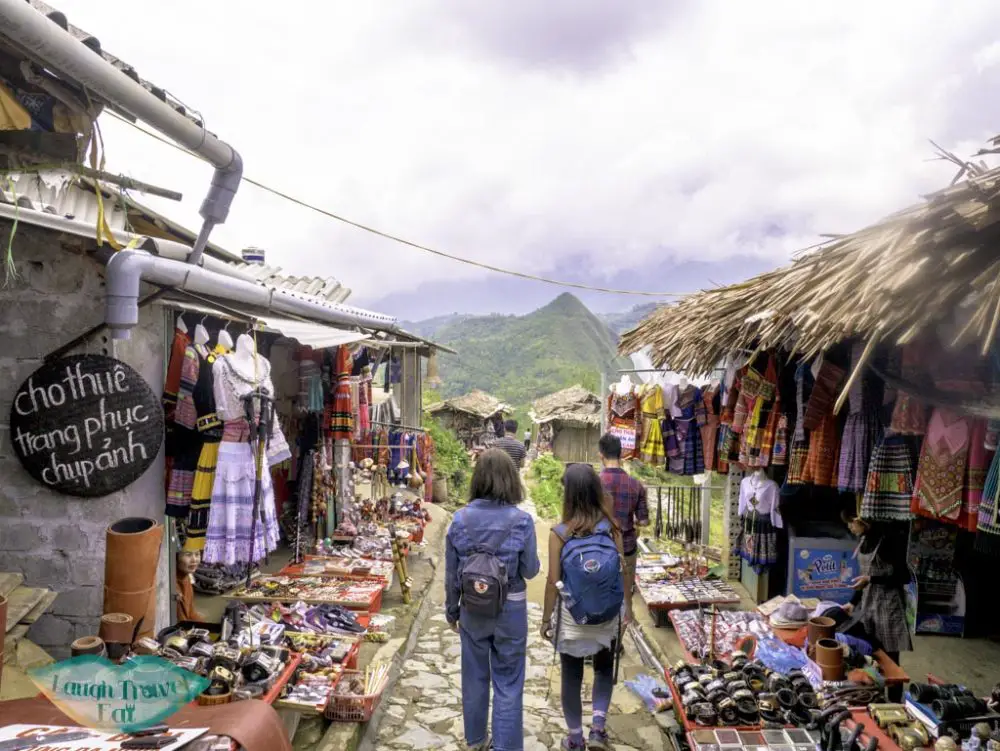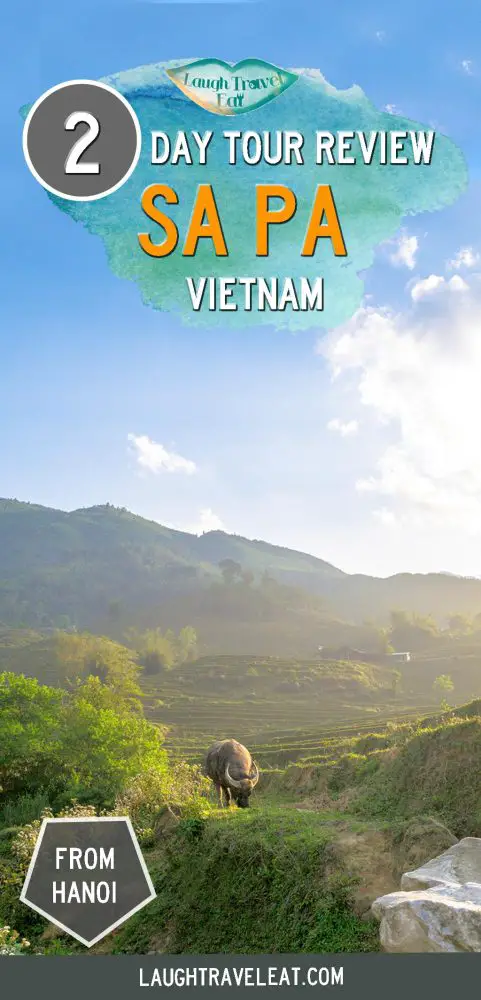
Chasing rice paddies: a review of 2 day 1 night Sapa tour, Vietnam
When thinking of northern Vietnam, Sapa is without a doubt one of the main attraction. Located near the China-Vietnam border high up in the mountains, Sapa is known for its rice paddies and hill tribes. However, it is a six-hour ride from Hanoi, and the logistic of arranging your own transport up really isn’t as easy as I would like. In fact, I wasn’t even planning on visiting Sapa on my northern Vietnam trip at all. In the end, we ended up booking a well-reviewed tour from Klook and I absolutely loved the trip.
Hanoi to Sapa need to know
To travel independently to Sapa, there are two main ways to do it. You can go directly by bus or take a train to Lao Cai then a bus or taxi up. The mountain pass up from Lao Cai to Sapa is rather treacherous, and unless you want to do a sleeper bus, I suggest taking a direct bus and going during the day.
Booking a Sapa Tour
Since we didn’t want to handle the logistics, especially with our trip to Ninh Binh being a bit of a disaster with transport, we booked a tour. There are many tour desks that offer extremely affordable Sapa tour packages, but I would steer clear of them. A local friend told me that she had tried going on one of those 25 USD tours where the guide spoke no English and left her to translate for the two girls that were on tour.
We wanted to be able to do some trekking and squeeze Sapa in with the two days that we had left, and the tour on Klook was perfect. It already has great reviews as well as the option to stay at a homestay or hotel.
Homestay or Hotel
We had originally wanted to stay at the homestay, however, after chatting with an online help desk we decided to go for the hotel as they were not sure if there will be outlets.
It turns out that there is both hot water and outlet in the homestay, but we were glad that we stayed at a hotel in Sapa because:
- We didn’t have to carry all our belonging on the trek in day 1 to reach the homestay, having checked in at the hotel at lunch already
- We were able to go into Sapa town during the evening for a massage and sightsee a little
- It was good to be able to shower in a hotel
- If you are not used to a homestay, the insect noises might keep you awake as it did for one of the guys who stayed there
The current price is at 77.2 USD for homestay and 88.4 USD for a hotel.
See the tour page here
Sapa itinerary
Day 1: pick up and trek
On day 1, we were picked up at 6:30 in the morning on a very comfortable minivan. There were 9 of us on the 16 people van, each seat is reclinable with its own USB charging port and bottle of water. There is also WiFi on board, though it gets a little patchy once we reach the mountain pass.
The drive up is 6 hours and we had two rest stops along the way to stretch our legs and use the bathroom. The traffic on the mountain pass is the most unpredictable, but we were fortunate that there was only a little traffic jam.
It turned out we had all booked through a different agency. We stopped at one of the hotels for lunch and the three people who were staying there checked it. The lunch was nothing special, with Chinese/Vietnamese lunch. Three other people in the group are also on a separate tour for the day to the mountains. So after lunch, we were given a half hour break where the four of us in another hotel checked in.
Another van picked us up to our hike and we find the Hmong tribe women already waiting for us at the trail start. They had greeted us when we arrived at the hotel, and it seemed that they would accompany us for the hike. There were five of them, two are carrying children and the others a big basket on their back.
They were extremely helpful to the group during the hike and let us take photos of them, jumping from puddle to puddle and navigating downhill in plastic flip-flops. The trail actually ran parallel to the main road which was within view the whole time, but still, the view was more than I expected:
Having been to Bali as well as Yunnan, I am still stunned by their beauty. The hike was mostly downhill, and relatively easy but still require appropriate footwear. We hiked for a total of about three hours, soaking in the view as we approached the village that was our endpoint. The weather was beautiful, too, which helped me take some great photos.
At the end of the village, we stopped for a rest and here’s where the Hmong women will sell you their craft items. Remember to bargain hard if you are to purchase anything, though my sister referred to it as emotional blackmail. I was okay with buying something after all the photos I took, providing there is something that I like. I ended up getting a silver bracelet that’s clearly not silver, and my sister got some fabric bracelet as a souvenir for around 40 HKD each.
We were then picked up by the van, which dropped off the homestay people and then took us back to our hotel. Dinner was 7pm, which we ate with the two girls who were in our hotel but on a different tour. Since we were in Sapa town, we ventured out for a good roam and foot massage!
Day 2: Cat Cat Village
After breakfast, we regrouped in the other hotel and met with the people who stayed at the homestay. It was then a short hike to Cat Cat Village from our hotel, only 3 k. We stayed along the main road, going downhill and passing some rice paddies.
Cat Cat Village has been around since the 19th century, with the Black Hmong people settling here and planting rice paddies. Nowadays, it is kind of like a living museum, with tourist paying an entrance fee to roam the village ground.
There are quite a lot to see in the village, from the Traditional Hmong house to the little windmills and bridges. There are many places that rent Hmong costumes for you wear at around 30 to 40 thousand dongs, so if you feel like it is a great photo shoot idea.
We spent the entire morning roaming Cat Cat Village:
We return to the hotel for lunch. Unfortunately, due to poor weather condition, our van was delayed on its way up. We didn’t get out of Sapa until 4pm and reached Hanoi just before midnight. We were, however, comfortable on the van.
The verdict on Sapa tour
Overall, I would 100% recommend taking this tour, particularly because there are too many tourist traps in Hanoi. However, it’s customary for me to make a list of pros and cons!
Pros:
- Comfortable and nice transport
- Good organisation and friendly guides
- The right amount of trekking and we were able to see what we can in 2 days
Cons:
- The food isn’t amazing, but not bad. If you don’t feel like hotel food, you can always just eat out
Book the Sapa 2D1N tour
Link nội dung: https://nhungbaivanhay.edu.vn/review-sapa-a66139.html


